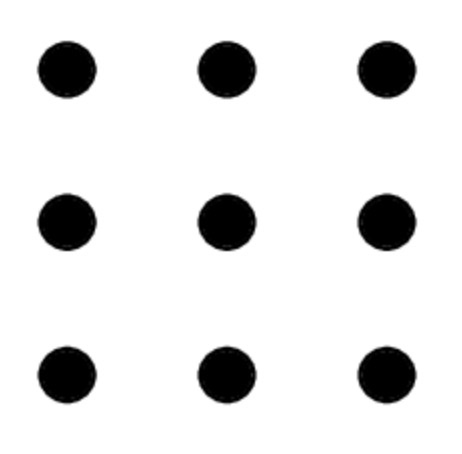This article was co-composted with Xiq of Fractal Sidequests (alternative version of it there)
Now that machines are increasingly replacing humans for cognitive tasks, wisdom is more important than raw intelligence. It’s not an accident that the frame problem is still a sticky issue in AI - there is no algorithm for wisdom.
What is wisdom? Merriam-Webster says the “ability to discern inner qualities and relationships” and highlights “insight” and “judgment”. Charles Haddon Spurgeon defines it as "the right use of knowledge". The right use of knowledge, not knowledge.
The wise person knows what is important and what is not. When to apply Bayesian networks and decision trees and when to make a gut decision (or draw a tarot card). She is skillful and gracious, not just excellent.
Wisdom is not about facts, it’s an applied art. In this 2 part series, we’re exploring wisdom as the mastery of frames.
Wisdom is the art of recognising, breaking, choosing, and crafting frames
Fractal frames
Wisdom is adaptive frame-work.
By “frame” we mean
an ontology / map of the world
a filter or lens; a way of looking
a set of assumptions/ heuristics
By “adaptive”, we mean that it must be appropriate to the situation at hand and lead to effectiveness and well-being.
This world of ours is a swirling, overflowing, and beautifully complex mess. Any order you perceive is co-created by you, by applying frames. As John Vervaeke puts it, "We're capable because of our ability to ignore so much information. Every bias is a heuristic misfiring, every heuristic is a bias that works in our favour."
And it’s not just about problem solving - you wouldn’t even be able to perceive the world without applying frames. Yes my nerds, frames can be thought of as priors in the predictive processing model (see Vervaeke on predictive processing and relevance realization).
Some deeply routed frames are probably encoded on a biological level, such as parsing the world as objects & affordances, even space-time.
Others are psychological (emotions, motivations, sense of self) and many more are cultural (from language to logic). Some frames can be superficial and easy to manipulate as objects, others are deep and unconscious and hard to become aware of. It’s frames within frames, and frames all the way down.
The very fact that you are reading this article implies a whole range of frames. Most of these frames are unconscious and seem like a “given”, e.g. that you are a person parsing the symbols emanating from the screen of your device to extract meaning from them. Why are you reading this? Whatever the answer, that’s a frame. Are you speed-reading to figure out whether this is worth your attention? Tickled by the insight cascades these words unleash or impatient to get past the obvious framing (pun intended) to the meat of the article?
The point is, all of these frames are optional, and some may be more helpful than others (to you, specifically).
Becoming a frame wizard
Wisdom is mastery of frames. To become a frame wizard, a daoist Zhenren, one needs to master the following four operations:
Recognising
Breaking
Choosing
Crafting
I’m exploring recognising and breaking frames in part 1.
Recognising frames
Most frames are applied in an unconscious, automatic way. Gurdjieff says:
"Man is a machine. All his deeds, actions, words, thoughts, feelings, convictions, and habits are the result of external influences.”
The only way to become wise is to notice what frames are being applied automatically. The problem is that not all of these frames are helpful. If Johnny was born in a family of pro athletes with 6 brothers where the loser of the daily family brawl didn’t get dinner, he might have grown up to be a tad competitive. The frame of competition is applied by default to every aspect of life, including friendships and romantic relationships. You can paint the rest of the story yourself.
Recognising frames is easier said than done though. It requires what Vervaeke calls a “transparency-opacity shift”. What was transparent, the lens we were looking through, became opaque, an object to be examined.
This same pattern of taking what was part of the subject as an object is also key for human development from Piaget to Kegan. Whereas relationships are seen as an inherent, fundamental part of the self in the socialised mind (Kegan 3), they become an object that can be changed in the self-authoring mind (Kegan 4).
There are several pathways for practice that can help with this aspect of recognising frames:
Perspective-taking
The best training for recognising psychological frames is repeatedly entering other minds. The best school for perspective taking is deep personal relationships. It’s surprising how the same “facts” of situations are interpreted entirely differently by different people. Deep relationships afford communications channels with enough bandwidth to get these differences across. This not only builds up the capacity for empathy and theory of mind, but reveals how your own psychological frames are contingent. Another great way to train perspective taking are novels that allow you to enter the psychological frames of different characters.
Becoming aware of cultural assumptions
Frames are often shared by entire cultures. Have you ever noticed when dining out that in some countries, waiters hurry to clean up the plates as soon as you are done, while in others, they wait for everybody at the table to finish? Both are polite in their respective frames (remove dirty dishes vs. not stress the people still eating). Similarly, the right physical distance for conversations is different across cultures. In the US, almost every polite interaction comes with a smile. That same amount of smiling would get you into a madhouse in Russia. Travelling with deep cultural immersion is probably the best way of increasing awareness of cultural frames. The number of everyday differences are truly surprising. Studying history could serve a similar function.
Vipassana meditation
The ultimate practice for recognising frames is insight (or Vipassana) meditation. Rigorously investing experience, especially thoughts and emotions, will afford the capacity to do a transparency-opacity shift on demand. Since most frames are made of thoughts, training the capacity of metacognition, seeing thoughts as objects, is a super power for recognising them. Michael Taft describes the whole process of meditation as “making the unconscious conscious”.
Breaking frames
First off, we are not trying to get rid of frames altogether (time-space is quite useful in most cases, for example). However, some frames are actively hindering our well-being and effectiveness in the world. It’s those frames that the wise person knows how to break.
A true frame wizard has cultivated metacognition to such a high degree that she is always conscious of what frames are active at any time. However, mastery in metacognition is not required to be able to break frames. There are clear cues that an unhelpful frame is active, most notably a sense of being stuck. Whether in an everyday situation, a relational issue, or a problem-solving context, feeling stuck is the mindfulness bell that can trigger you to question your frames and break them.
There is only a small step from recognising to breaking a frame. Once you clearly see that:
a frame is not “how things are” but merely how you currently look at them and
that this particular way of looking seems unhelpful,
letting go of that frame is almost a natural consequence. To practise your ability to break frames, consider the following:
Thinking outside the box
Concrete problem-solving contexts are great practice because they provide a clear feedback loop. This could be either technical problems (e.g. coding or math puzzles) or creative problems (e.g. writing an article about wisdom). Strategy games like chess are also relevant here. In all of these examples, the practice is to
Notice when you’re stuck on the problem at hand
Recognise which frames are active
Let go of these frames and open up to new ways of looking
(Wait for the insight to hit - “Eureka”, you’ve found a better frame!)
To illustrate this process, let's look at the classic 9-dot problem: Connect the dots with four straight lines without lifting the pen.
Most people try and fail at this. Most people will think it's impossible because they assume the lines need to stay within the bounds of the square, when that was not part of the problem statement.
In this case, people were "trapped" by the frame of assumptions they unconsciously selected. A wiser person notices this frame and then discards it, creating the degrees of freedom needed to solve the problem.
The reason we become trapped in frames like this is the same reason we are able to handle so much complexity in the world. We filter the information we receive to attend to only the relevant parts.
As John Vervaeke puts it, “The way you frame the problem is what's preventing you from solving it."
Changing your stories
Many unhelpful frames exist on the level of stories about the self and the world. For example, holding the story “I’m not creative”, “I don’t have anything interesting to say” or “an AI could write this piece” would make writing this piece considerably harder. One of the most helpful practices to break unskillful narrative frames is good old therapy, especially cognitive behavioural therapy (CBT). CBT works by identifying, challenging, and changing negative thought patterns.
Shattering frames
It can be difficult to hang out in the limbo space of having broken a frame but not yet replaced it with a better one. Hanging out in non-conceptual space is excellent practice to hone this capability. Vipassana meditation, in high enough doses (e.g. a week of retreat or more) will not just allow you to recognise frames but gradually dissolve them. Similarly, a high enough dose of psychedelics will shatter your frames and can bring you to similar states much quicker (and less reliably). Obliterating your world-simulation is not required to become wise, and may not be wise at all depending on circumstances.
Recognizing and breaking these unhelpful frames are the foundation for developing wisdom. However, the real wizardry starts with the steps after that, selecting the appropriate frames, and even crafting your own frames on the fly. That’s what I’ll dive into in part 2 of this exploration.
How not to write
Frame wizardry is a personal aspiration, and I’m writing it as much for you as for myself. An obvious area of application is inspecting my frames for writing. Unskillful frames that I want to recognise and break include the following:
Wanting to write a “perfect” article, something truly ground-breaking
Posing as smart or edgy, using writing to prop up my ego
Writing to please an imagined audience, increase those Substack numbers
Writing as just another item on the todo list, something to get done
These are all shitty frames and often when I’m stuck with writing, I notice one of the frames above has become active. As soon as I replace them with something more useful, the words start flowing again. I’ll share what frames I find more helpful for writing in part 2.















Love it! Are you aware of Rob Burbea’s work? Insight meditation as frame breaking/dissolving in his book Seeing That Frees, but more pertinently his subsequent work ‘Soulmaking Dharma’ which never made it into a book (he died first). Boils down to the crafting of frames for the purpose of creating soulfulness, reverence, beauty, awe etc. Hermes Amara Foundation is the best source of info. Looking forward to part 2!
Since you mentioned Gurdjieff, I would suggest including the Enneagram as a valuable tool for identifying the 'box' we're in and providing a 'map' to help us find our way out.